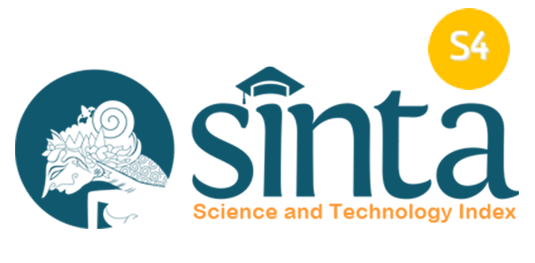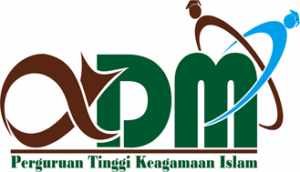The relationship of formal reasoning ability and achievement motivation with student learning achievement
Abstract
Keywords
Full Text:
PDFReferences
A Andry, B. (2020). Coping Mechanisms for Elementary School Students (Case Study at Mutiara Hati Malang Integrated Islamic Elementary School). Journal of Islamic Education Counseling , 1 (1), Article 1. https://doi.org/10.32806/jkpi.v1i1.6 Abid, CO, Abid Hussain. (2019). Equivalent to formal education or rethinking education through a lens of non-formal education: Case studies of equivalency programs in Asia. In Cross-Bordering Dynamics in Education and Lifelong Learning . Routledge. Banawi, A. (2019). Implementation of Scientific Approach in Discovery/Inquiry Learning Syntax, Based Learning, Project Based Learning. BIOSEL (Biology Science and Education): Journal of Science and Education Research , 8 (1), Article 1. https://doi.org/10.33477/bs.v8i1.850 Boekaerts, M. (2010). Motivation and self-regulation: Two close friends. In TC Urdan & SA Karabenick (Ed.), The Decade Ahead: Applications and Contexts of Motivation and Achievement: Vol. 16 Part B (pp. 69–108). Emerald Group Publishing Limited. https://doi.org/10.1108/S0749-7423(2010)000016B006 Bronkhorst, H., Roorda, G., Suhre, C., & Goedhart, M. (2020). Logical Reasoning in Formal and Everyday Reasoning Tasks. International Journal of Science and Mathematics Education , 18 (8), 1673–1694. https://doi.org/10.1007/s10763-019-10039-8 Chimaka, AI (2014). Formal Education: A Catalyst to Nation Building . https://www.peterlang.com/document/1047951 Darmawan, D. (2019). PROFESSIONALISM, ACHIEVEMENT MOTIVATION, ORGANIZATIONAL COMMITMENT AND ITS INFLUENCE ON ENTREPRENEURSHIP INTENTION. EQUITY (Journal of Economics and Finance) , 3 (3), 344–364. https://doi.org/10.24034/j25485024.y2019.v3.i3.4167 Jannah, LM (2019). Quantitative research methods . Eagle Press. Jusman, MJM (2018). The Influence of Formal Reasoning Ability, Achievement Motivation, and Metacognitive Awareness on Mathematics Learning Achievement of Class XI IPA Students of SMA Negeri in Parepare City [Diploma, FMIPA]. http://eprints.unm.ac.id/6413/ Martin, JJ (2017). Achievement Motivation Theory. In JJ Martin (Ed.), Handbook of Disability Sport and Exercise Psychology (p. 0). Oxford UniversityPress. https://doi.org/10.1093/oso/9780190638054.003.0017 Nawi, M. (2012). The Influence of Learning Strategies and Formal Reasoning Ability on Mathematics Learning Outcomes of High School Students (private) Al Ulum Medan [Masters, UNIMED]. http://digilib.unimed.ac.id/3616/ Patkos, T. (2010). A formal theory for reasoning about action, knowledge and time [Thesis, University of Crete]. http://hdl.handle.net/10442/hedi/25325 Rambega, UL (2016). The Correlation Between Formal Reasoning Ability and Motivation to Study Physics Against Physics Learning Outcomes of Students of SMPN 19 Bulukumba, Bulukumba Regency. Journal of Physics Education , 4 (3), Article 3. https://doi.org/10.26618/jpf.v4i3.326 Syahrowiyah, T. (2016). THE INFLUENCE OF PRACTICE LEARNING METHODS ON MOTIVATION AND LEARNING OUTCOMES OF ISLAM RELIGIOUS EDUCATION IN CLASS IV ELEMENTARY SCHOOL STUDENTS. Studia Didaktika: Scientific Journal of Education , 10 (02), Article 02. Tawil, M. (2008). Formal Reasoning Ability and Family Education Environment are Associated with Physics Learning Outcomes of Class X Students of SMA Negeri 1 Sungguminasa, Gowa Regency. Journal of Education and Culture , 14 (75), Article 75. https://doi.org/10.24832/jpnk.v14i75.371 Tiara Ernita, F. (2016). THE RELATIONSHIP BETWEEN LEARNING METHODS AND STUDENT LEARNING ACHIEVEMENT IN CIVIL SUBJECTS IN CLASS X STUDENTS OF SMA NEGERI 1 BANJARMASIN. Journal of Citizenship Education , 6 (11), Article 11. https://doi.org/10.20527/kewarganegaraan.v6i11.747 Weinberg, A., Wiesner, E., & Pfaff, TJ (2010). Using Informal Inferential Reasoning to Develop Formal Concepts: Analyzing an Activity. Journal of Statistics Education , 18 (2), null. https://doi.org/10.1080/10691898.2010.11889494
DOI: https://doi.org/10.18860/ijtlm.v6i2.21364
Refbacks
- There are currently no refbacks.
Copyright (c) 2024 Baso Intang Sappaile, Andi Tenri Abeng, Nuridayanti Nuridayanti

This work is licensed under a Creative Commons Attribution-NonCommercial-ShareAlike 4.0 International License.
Indexed by :
.png)
.jpg)
.png)

.jpg)


